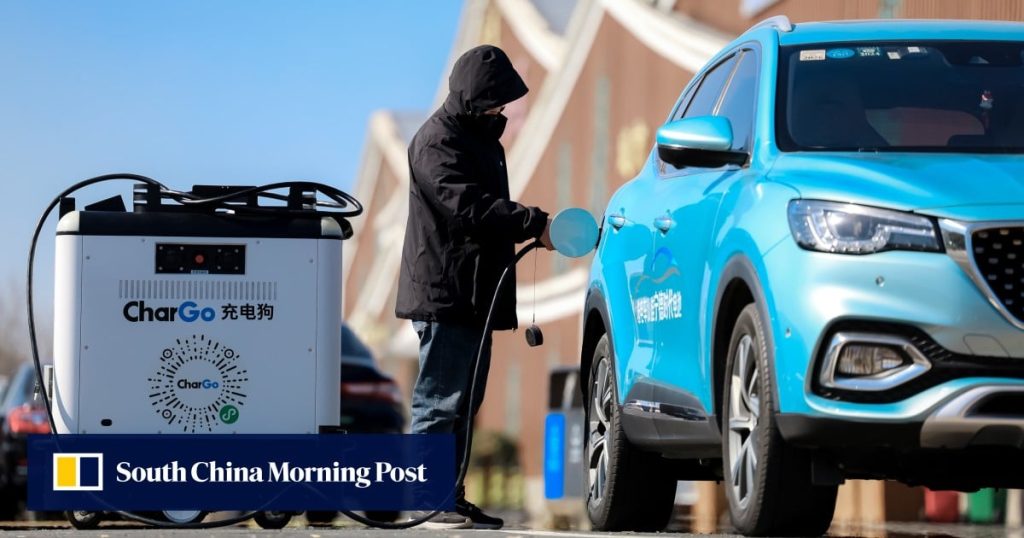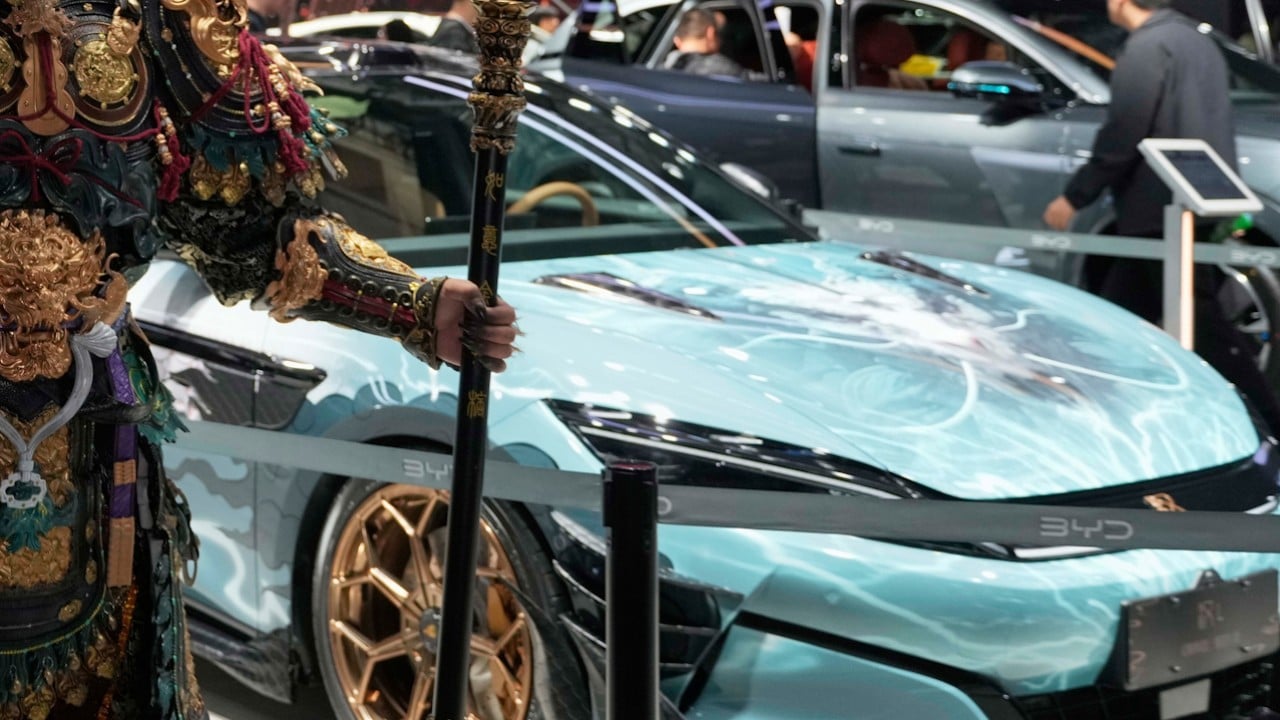The group last year established CharGo to develop mobile storage and charging and testing robots for EVs to diversify its business. The robots can be used wherever EV charging piles or stations are lacking, fully occupied or out of reach. Drivers can book the robot-charging service by phone.
“CATL does not want to be defined simply as a battery manufacturer or battery solution provider,” CharGo CEO Kevin Xu said in an interview last week. “We want to become a pioneer in the new-energy industry and create a closed-loop ecosystem that encompasses everything from power generation to storage to conversion.”
The Shanghai-based unit aims to become the market leader in this sector, with plans to deploy between 5,000 and 15,000 units globally over the next two years, starting in more than 100 mainland cities. The company has more than a hundred charging robots in operations, mostly for demonstration projects.
The size of China’s mobile EV charging robot market could reach 50 billion yuan (US$6.9 billion) by 2030, or at least 20 per cent of the country’s overall EV charging market, he estimated. CharGo aimed to enter overseas markets by the second half of 2026, targeting Southeast Asia, the Middle East and Europe, he added.
Its EV battery business remained the company’s largest in 2024, contributing nearly 70 per cent of total revenue last year. Energy storage system batteries accounted for 16 per cent. While revenue shrank 9.7 per cent amid lower global lithium prices, net profit grew 15 per cent from a year earlier to 50.8 billion yuan in 2024.



